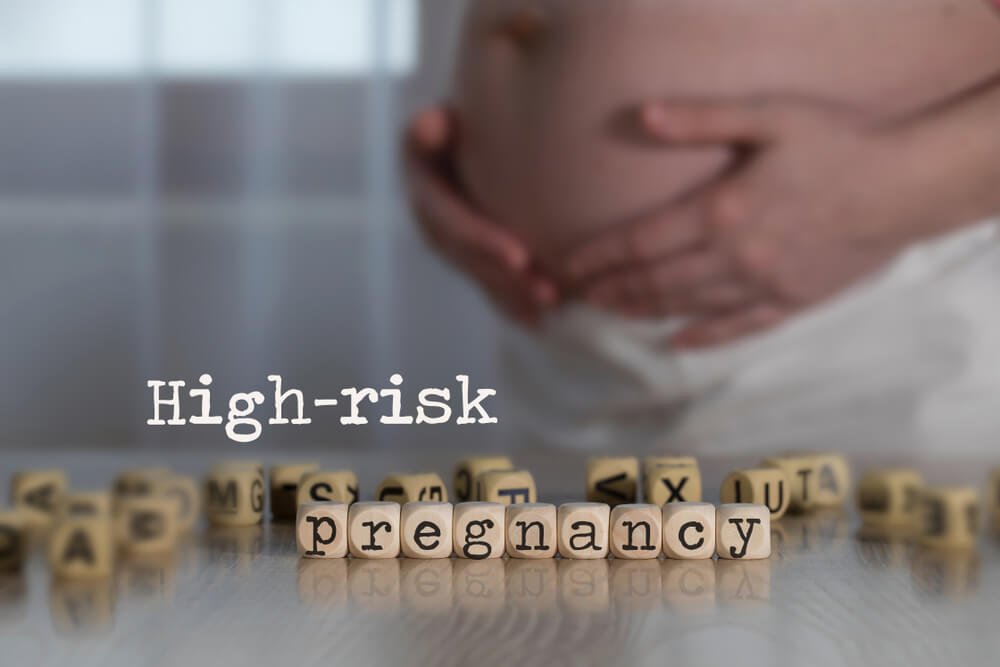When a person is pregnant, but their pregnancy includes health risks for both the baby and the mother, this condition is called a high-risk pregnancy. Specialists who handle patients with high-risk pregnancies are called high-risk obstetricians, and they specialize in dealing with and managing high-risk pregnancy complications.
Clinics, such as Women’s Care of Bradenton, are equipped to help future mothers overcome the risks and complications possible during their pregnancies. The in-house high-risk obstetricians are specifically trained to guide these patients and help them deliver healthy babies while preserving their general health.
What Makes a High-Risk Pregnancy?
It is well known that every pregnancy brings certain risks and exposes the mother and the child to potential complications during those nine months prior to delivery. When speaking about high-risk pregnancies, the risk factors are much higher than normal, and they tend to endanger the mother, the child, or both. Women diagnosed with this condition need to be additionally monitored and cared for, from conception to delivery and afterward. This is a safe way to avoid high-risk pregnancy complications.
That said, no rule states that if you are having a high-risk pregnancy, you and your child must suffer throughout the process. Many women with this condition carry out their pregnancy perfectly well and have a safe delivery of a healthy child.
Around 50,000 women in the United States go through severe high-risk pregnancy complications every year. Some researchers state that African-American women are three times more prone to die from complications related to their pregnancy than Caucasian women.
Causes

Different factors make a pregnancy high-risk, and they can include:
- Already existent health issues
- Health issues arising from the pregnancy itself
- Habits such as smoking, alcohol use or drug use
- Exposure to toxins
- Being over 35 or under 17 while pregnant
When it comes to preexisting health issues, there are several that can directly influence your pregnancy, and they are:
- Lupus
- Multiple sclerosis
- Autoimmune diseases
- Diabetes
- Fibroids
- Covid-19
- HIV/AIDS
- High blood pressure
- Kidney disease
- Mental health issues (depression)
- Obesity
- Low body max index (less than 18)
- Issues with the thyroid gland
- PCOS (polycystic ovary syndrome)
- Blood clotting issues
Conditions that can arise from the pregnancy itself are also health risks for both the mother and the child, and they include different congenital disabilities, genetic conditions of the child, gestational diabetes, slow growth of the fetus, preeclampsia, eclampsia, prior preterm labor or issues with previous pregnancies, and similar.
Symptoms of High-Risk Pregnancies
The following list of symptoms will help you identify whether or not you are potentially having a high-risk pregnancy, so you can contact your chosen doctor and schedule a check-up. The symptoms are:
- Chest pains
- Pain in the abdomen
- Fainting or dizziness
- Very severe fatigue and exhaustion
- Slow or no fetus movement
- Fever over 100°F
- Nausea
- Vomiting (excluding morning sickness)
- Heart palpitations
- Face and limbs are red, swollen, or painful
- Headaches that are continuous and severe
- Issues with breathing
- Vaginal bleeding
- Vaginal discharge
- Tendencies to harm yourself or the baby
Age as a Significant Factor
As mentioned in the beginning, age is one of the most common risk factors when it comes to pregnancies characterized as high-risk. Future mothers who are over 35 or under 17 are always placed in the high-risk category, and here are some reasons why.
Women over 35 are more likely to experience complications than those younger, especially when it comes to early pregnancy loss, gestational diabetes, and the like. For women younger than 17, the complications might be related to anemia, the small likelihood of getting high-quality prenatal care, the higher probability of premature labor and birth, lack of information regarding sexually transmitted infections, etc.
High-Risk Pregnancy Complications
There are numerous complications when it comes to a high-risk pregnancy, and below we have compiled a list that is in no way extensive but might be helpful for future mothers:
- Preeclampsia (high blood pressure caused by the pregnancy)
- Preterm delivery
- Eclampsia (seizure caused by the pregnancy)
- C-section delivery
- High or low birth weight
- Congenital disabilities
- Extensive bleeding during delivery or afterward
- Issues with the brain development of the baby
- Intensive care after delivery for both the mother and the child
- Stillbirth
- Miscarriage
Diagnosis, Monitoring, and Management
The very first step you have to take when you find out you are pregnant and choose a medical professional who will be your doctor during pregnancy is to schedule and attend prenatal care check-ups. It is of the utmost importance to share everything related to your health history with the doctor and any vital information concerning a previous pregnancy if that applies to your case. This is crucial to detect and diagnose high-risk pregnancies.
Doctors often use blood and urine tests, ultrasonography, a non-stress test, or a biophysical profile to monitor your health and the baby’s progress and development. Blood and urine tests are used to check for congenital conditions and genetic issues. Ultrasonography uses sound waves to screen the child for congenital disabilities. A biophysical profile test is most often recommended to monitor the child’s breathing patterns, movements, and amniotic fluid levels. Lastly, a non-stress test is the best option for observing the fetus’s heartbeat.
So, after you have been diagnosed with a high-risk pregnancy, the question is how to manage it and successfully deliver a healthy and happy baby. There are a few steps you can take, but this all depends on which risk factors you are exposed to, and the task of your chosen doctor will be to create a care plan for you. The steps can include the following:
- Regular consultations with a high-risk obstetrician
- Consultations with your chosen doctor and other medical experts
- Frequent ultrasounds and close evaluation of the fetus
- Blood pressure monitoring at home
- Monitoring of the medication intake used to regulate preexisting conditions
Prevention Strategies
Unfortunately, it is not possible to completely prevent high-risk pregnancies, but you can reduce the risks by avoiding the usage of drugs, alcohol, or cigarettes, identifying your health issues before getting pregnant, maintaining a healthy diet and body weight, managing health conditions you suffer from, planning to get pregnant after 18 and before you turn 35, and practicing safe sex by using protection regularly.
What Can Happen After a High-Risk Pregnancy?

Even if your pregnancy, although deemed high-risk, does not cause any problems and you successfully deliver your child, there might be some consequences for you in the future, which can include:
- Postpartum depression
- High blood pressure
- Issues with future pregnancies
- Stroke
- Diabetes type 2
- Cardiovascular issues
The consequences the child can suffer from are:
- Breathing problems
- Behavioral issues
- Mental health diagnosis
- Gastrointestinal disorders
- Developmental issues
- Growth delays
- Obesity
- Diabetes
- Neurological complications
- Issues with the child’s vision, hearing, or teeth
Contact Us!
If you still have not found the answer to what makes a high-risk pregnancy, use the contacts on our website and call our clinic. Our experts are here to explain anything you might want to know and guide you through a safe pregnancy.


